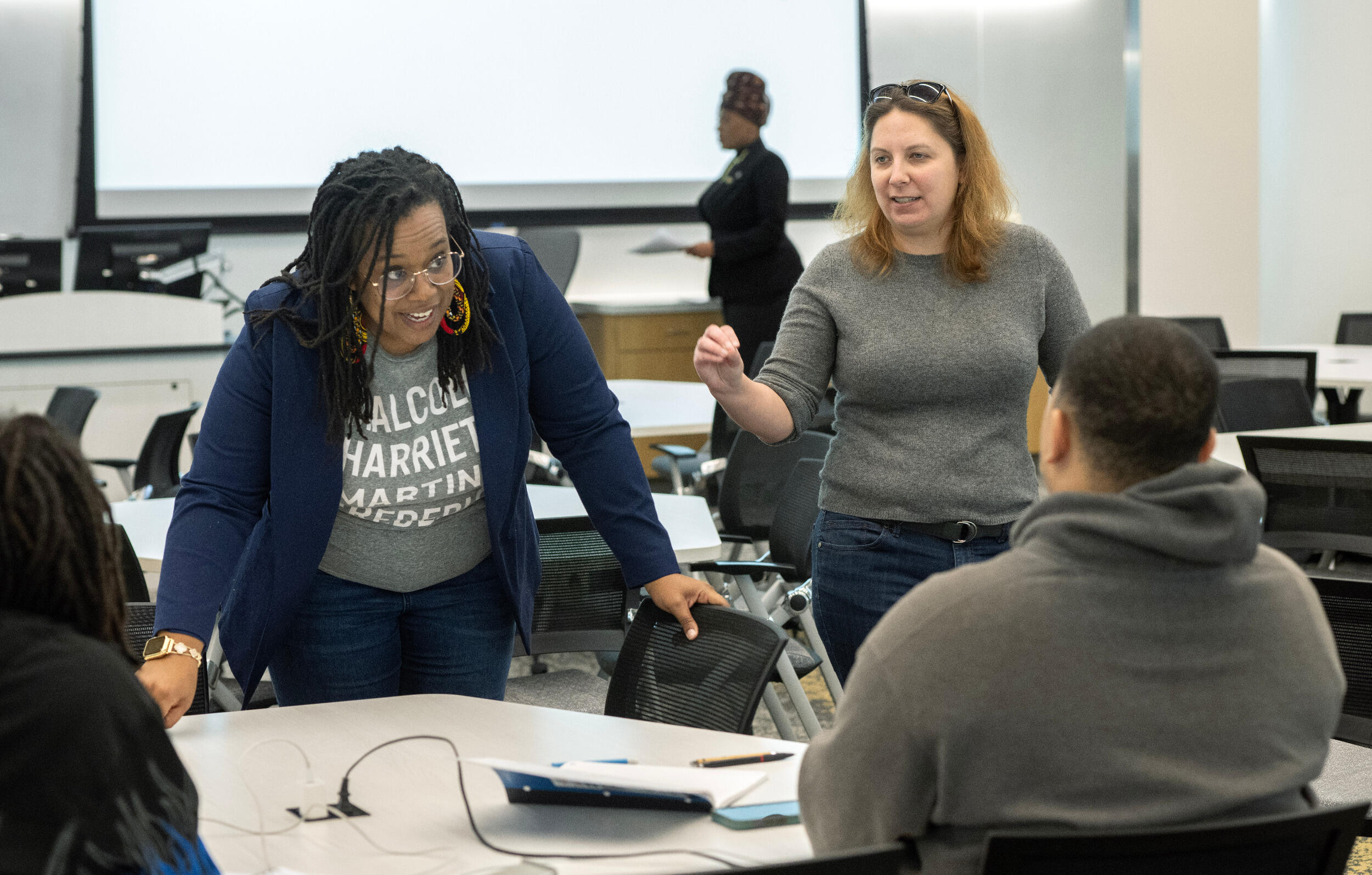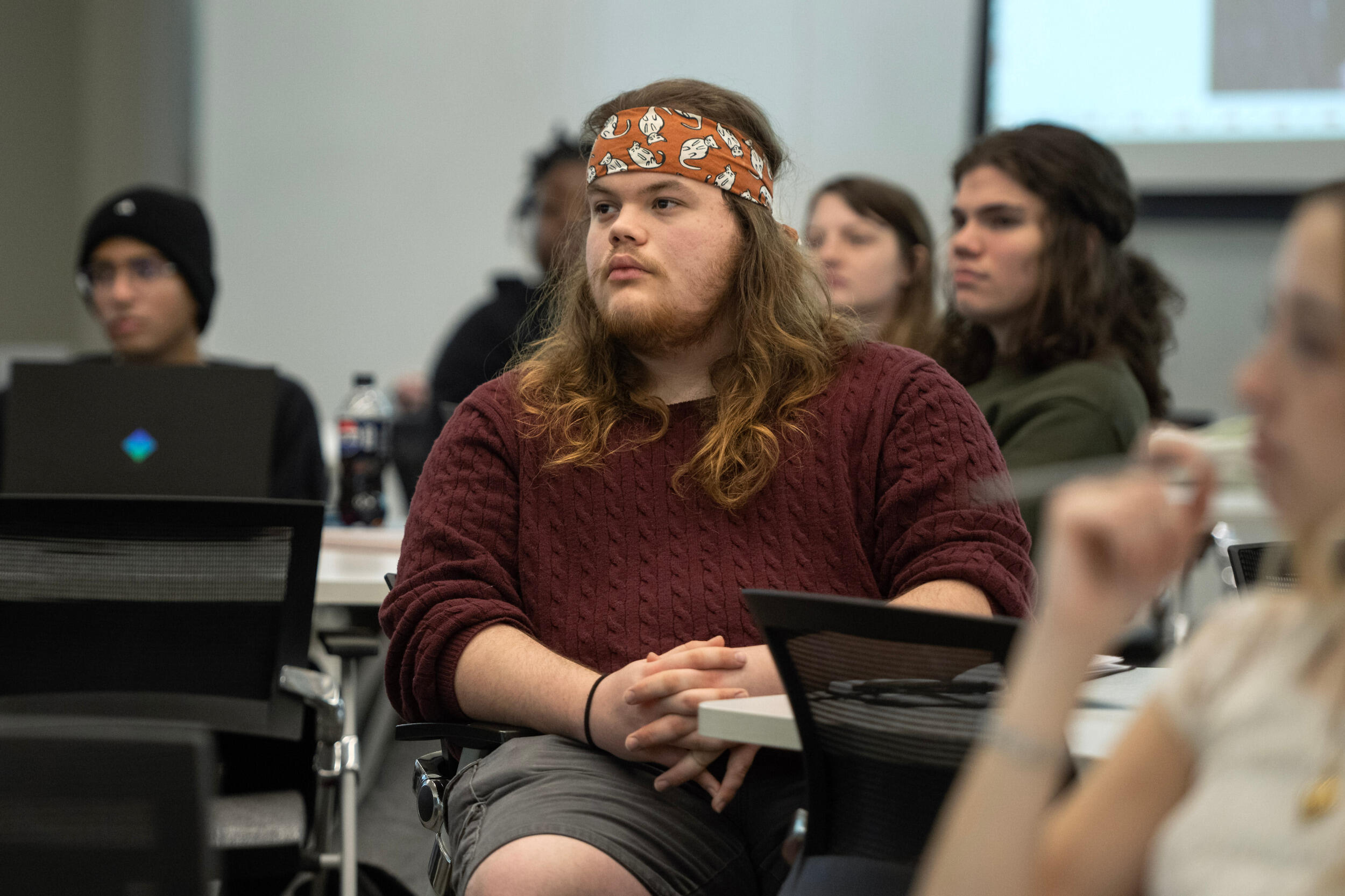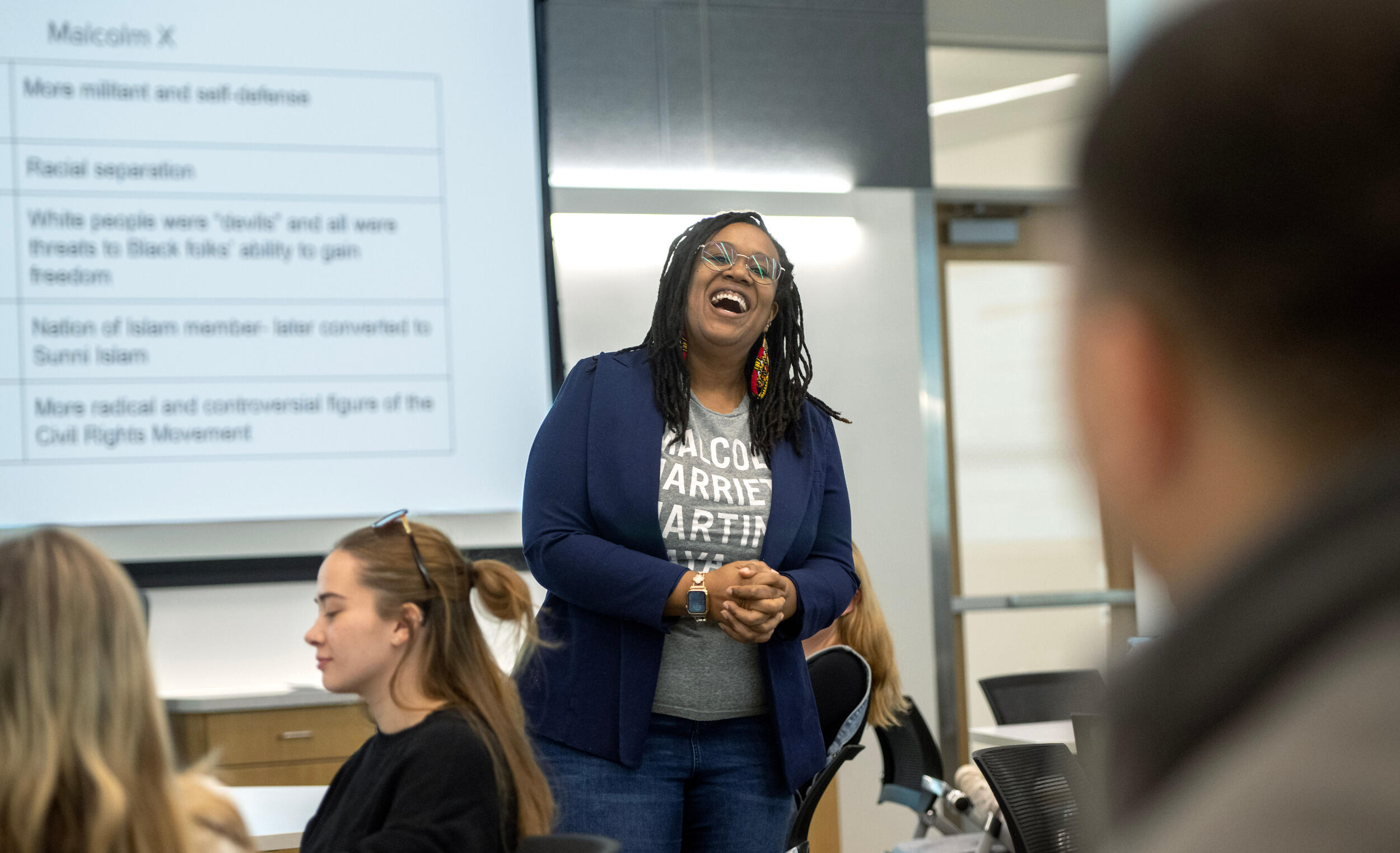
Feb. 13, 2025
For the many layers of American democracy, new course taps into the many layers of VCU faculty expertise
Share this story
As the United States prepares to celebrate its 250th birthday next year, more than 30 faculty experts from around Virginia Commonwealth University’s College of Humanities and Sciences are teaming up to teach a new course examining American democracy.
Featuring specialists from history and political science to philosophy and English – and even math and science – U.S. Democracy United/Divided takes a multidimensional look at the country’s past, present and future. Each class this semester features a guest lecture from a faculty member in the college, allowing students to explore one general topic – democracy – through a range of lenses.
The idea for the course and its atypical format originated in the fall semester when three associate deans in the college – Marcus Messner, Ph.D.; Amy Rector, Ph.D.; and Krista Scott, Ed.D. – began considering what it means to be American and to be involved in democracy.
Discussions started in November as German-born Messner went through the naturalization process and received his American citizenship. He found himself struck by the lack of bipartisan discourse in the current political landscape.
“In that context, there’s a lot of loss of confidence in democracy,” Messner said. “For me, that was the motivation to bring the best and the brightest in the college together.”
When the associate deans approached college faculty, they received resounding support. Thirty-one faculty members submitted lecture proposals for the course, covering topics that include freedom of the press, gerrymandering, immigration, conscious consumption and many more.
“It’s not just political scientists who want to be involved,” Rector said. “We have some mathematicians; we have people from biology. We have faculty from across the college who really see that democracy and the democratic process impacts all of our areas of study in different ways.”

With such a broad array of topics – and just as many lenses through which to look at them – U.S. Democracy United/Divided can also serve as a gateway for students whose studies focus on realms outside of political science or history.
“For some of these students, this would be the first time that they get to interact with folks across different disciplines and hear from different experts without having to take the commitment of a full semester course [in each topic],” Scott said.
After spring break, students will work on group projects focused on the future of democracy and how it can be strengthened. Messner called it a “mini-research symposium,” bringing together a range of considerations for students to discuss.
The associate deans hope that by the end of this semester, students will hold an understanding of the historical development and challenges of American democracy, the roles of governmental institutions, media and public discourse in a democratic system – and will be able to analyze the causes and effects of today’s political polarization and division, as well as propose solutions to improve governance.
Next fall, the same course will be offered again. After that, organizers hope to reimagine how U.S. Democracy United/Divided could take on new shapes and evolve with current events.
“This first iteration will allow us to gather some feedback and ask some questions about what students want to learn and know, how we can tap into expertise and identify proactively faculty [who might] have a perspective that might be valuable in this space,” Scott said. “Future iterations will be topical and thematic.”
Ultimately, what the facilitators most want to impart is that engaging in the democratic process is a privilege.
“That is evergreen,” Rector said. “Every single set of students needs to hear that over and over again.”
“Our students have agency,” Scott added. “Unless they choose not to engage, democracy does not happen to them – it happens with them, and it can happen because of them. This class allows them to empower themselves [by saying], here’s how we got to where we are, here’s what it looks like to support things you believe in, to challenge things that maybe you don’t.”
This semester’s students – with academic backgrounds reflecting the course’s expansive landscape – are embracing that spirit.
Fourth-year creative advertising major Kobi McCray enrolled in U.S. Democracy United/Divided because “knowledge is power. The best thing to do is to empower yourself, so I wanted to better myself in knowledge.”
Sophia Field, a fourth-year media production major, said that the course is a unique opportunity to hear dozens of perspectives from departments around the college – a breadth that classmate Thailon Wilson, fourth-year digital journalism major, is embracing as American democracy continues to evolve in so many realms.
“I want to hear different voices,” Wilson said, “and learn about the country’s history and where we’re going.”

Subscribe to VCU News
Subscribe to VCU News at newsletter.vcu.edu and receive a selection of stories, videos, photos, news clips and event listings in your inbox.







